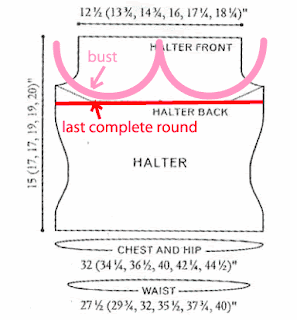 My landlords' dog Rex is a very sweet friendly golden retriever with an unfortunate habit of tearing up clothing, stuffed animals, and even their daughter's Webkinz (who my son insists are not stuffed toys but real live animals). Nicky says the dog is named Rex "because he wrecks everything."
My landlords' dog Rex is a very sweet friendly golden retriever with an unfortunate habit of tearing up clothing, stuffed animals, and even their daughter's Webkinz (who my son insists are not stuffed toys but real live animals). Nicky says the dog is named Rex "because he wrecks everything."
I was pessimistic about how well I would be able to repair these Webkinz' faces (Rex always goes for the eyes), so I didn't bother taking a before picture of my first patient, Snowy the Webkinz Harbor Seal (photo at right). Snowy had lost both eyes and eyebrows, and a large chunk of her left cheek.
All repairs were done with three strands of embroidery floss; facial features were drawn on with a fast fade marker using photos of Webkinz online as models before embroidering.
To repair Snowy's face, I used white floss to darn over the holes in her "skin", leaving an opening to make embroidering the eyes and eyebrows easier. I embroidered the eyes in dark navy (the closest I had to black) satin stitch, with a stitch of white for the highlights, and the eyebrows in dark navy back stitch, before closing up the darning.
 Noelle, a Webkinz Charcoal Cat, was the most seriously injured, having had a large portion of her face torn off (see photo at left, click to zoom). Her beautiful blue-grey fur, which changes colour depending on the angle of the light, was very difficult to match. I ended up using DMC colour #414, which is not a perfect match by any means, but the resulting repair looks much better than I had feared (see photo at right; click to zoom). As with Snowy, I darned most of the face but left an opening to use while I embroidered her facial features, then put in some stuffing and closed the darning.
Noelle, a Webkinz Charcoal Cat, was the most seriously injured, having had a large portion of her face torn off (see photo at left, click to zoom). Her beautiful blue-grey fur, which changes colour depending on the angle of the light, was very difficult to match. I ended up using DMC colour #414, which is not a perfect match by any means, but the resulting repair looks much better than I had feared (see photo at right; click to zoom). As with Snowy, I darned most of the face but left an opening to use while I embroidered her facial features, then put in some stuffing and closed the darning.
 Since I could not match her original nose and mouth embroidery either, I decided to remove it and replace it completely with DMC #768. Although her original mouth was an upside-down Y, I decided to embroider her mouth with the corners curving up in a smile. The three strands I used don't show up very well—perhaps I should have used six?
Since I could not match her original nose and mouth embroidery either, I decided to remove it and replace it completely with DMC #768. Although her original mouth was an upside-down Y, I decided to embroider her mouth with the corners curving up in a smile. The three strands I used don't show up very well—perhaps I should have used six?
For the replacement eye, I built it up in layers of satin stitch to try to make it a bit rounded, like the remaining original. First I embroidered a green circle (DMC #471) in satin stitch for the iris; then I embroidered a blackish circle on top of that for the pupil (DMC #3371, which looked black in the store but is really dark brown), and finished off with a white stitch for the highlight. I also used this blackish thread to replace Noelle's whiskers.
I'm not totally happy with the replacement eye, because the shape is not a perfect circle and although the placement seemed correct when I was doing it, with the stuffing inserted the new eye is not at the same height as the old. Next time I'm doing this type of repair I think I'll insert the stuffing before drawing the location of the new eye, then take the stuffing out to embroider.
There are still five more patients waiting treatment: Lily, a Lil Kinz Lion (missing both eyes and large chunks of her mane); Piggy, a Webkinz Pig (missing one eye); a Webkinz Pink Poodle (missing both eyes); Popeye, a Webkinz Pug (missing one eye, which I found under Anna's bed but have no idea how to reattach); and a Lil Kinz Googles (missing one nostril). I'll post their pictures as I get to them (if I can get my camera to work; last time I tried it kept complaining of a "focus error").














